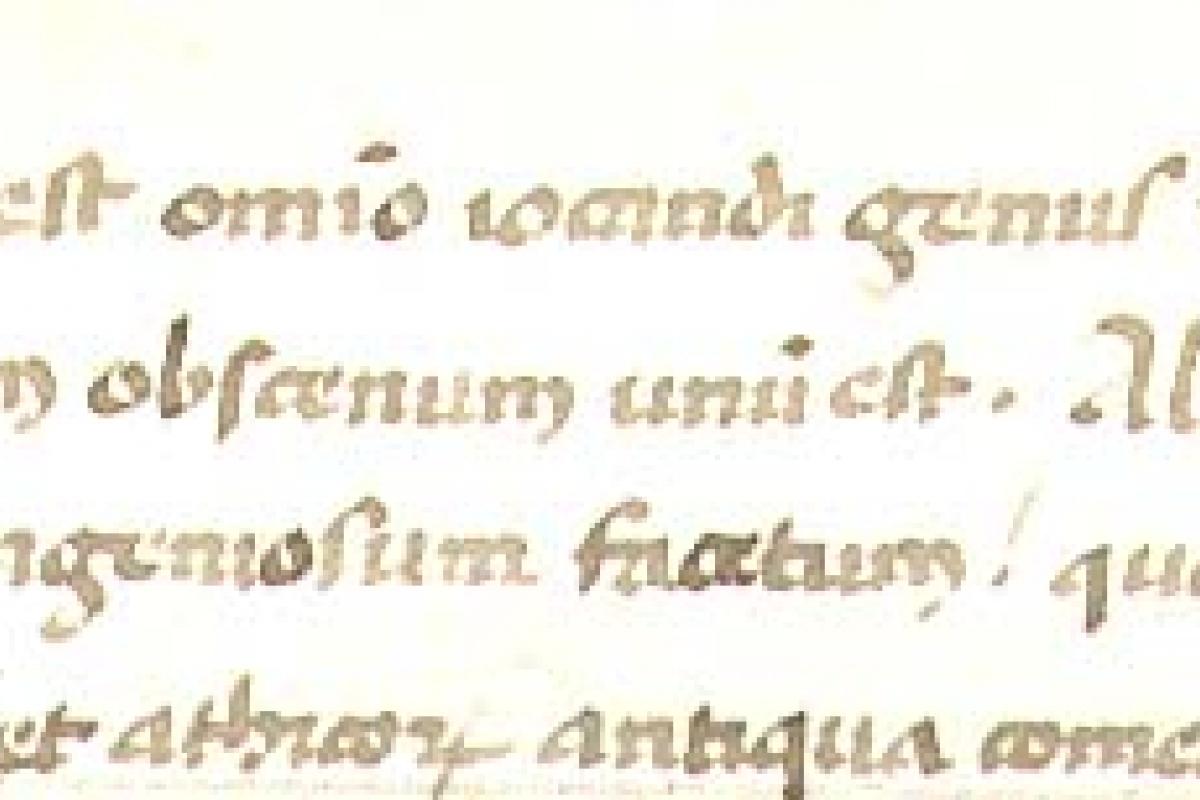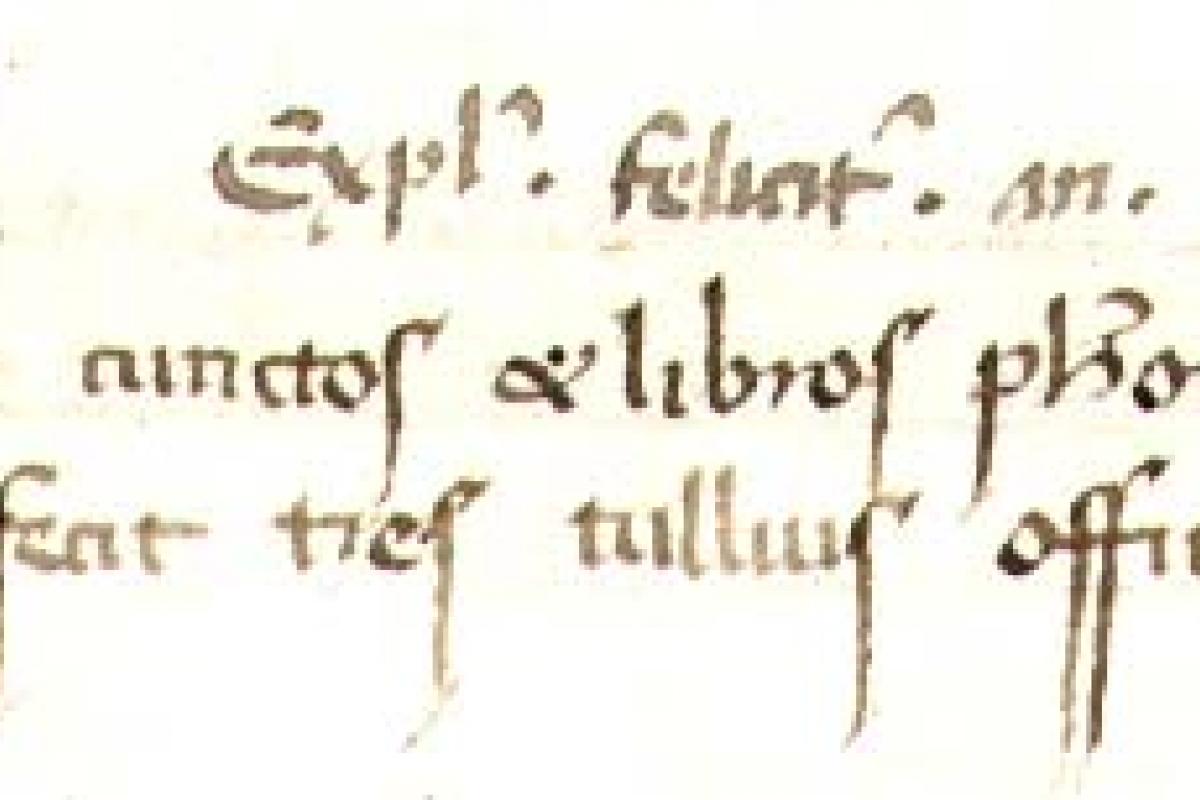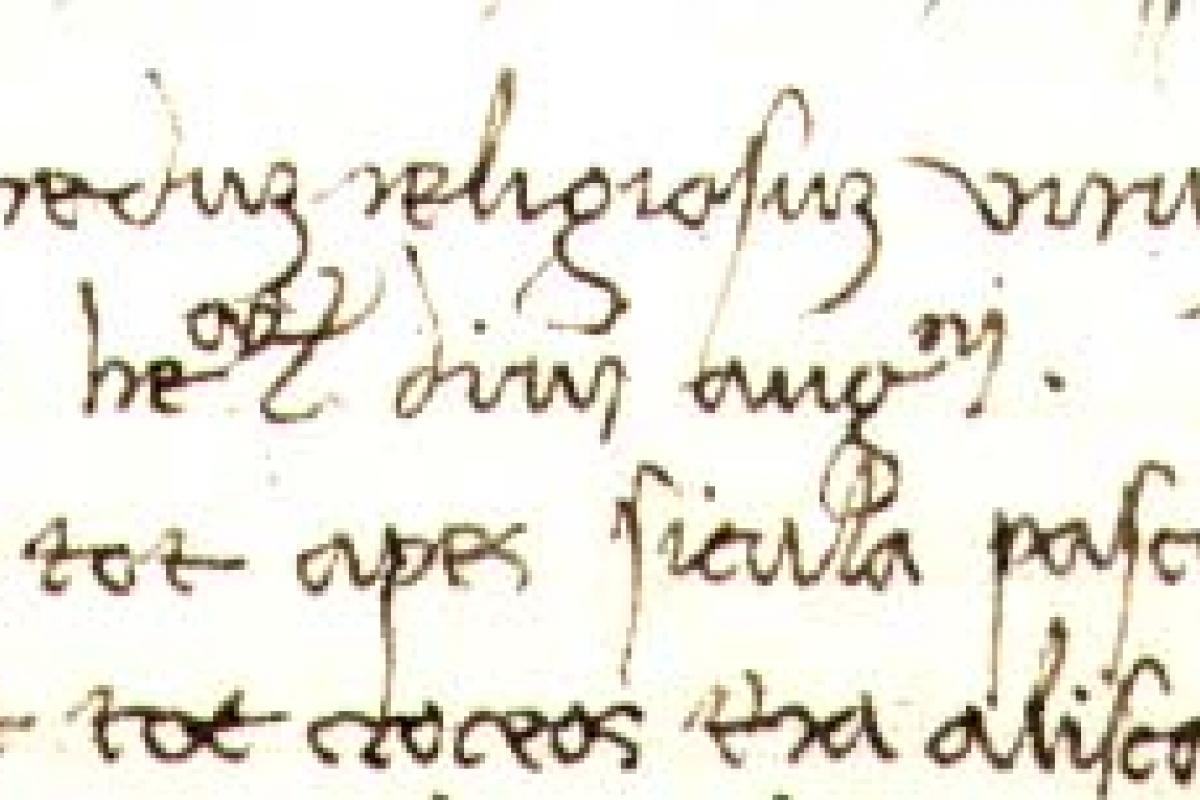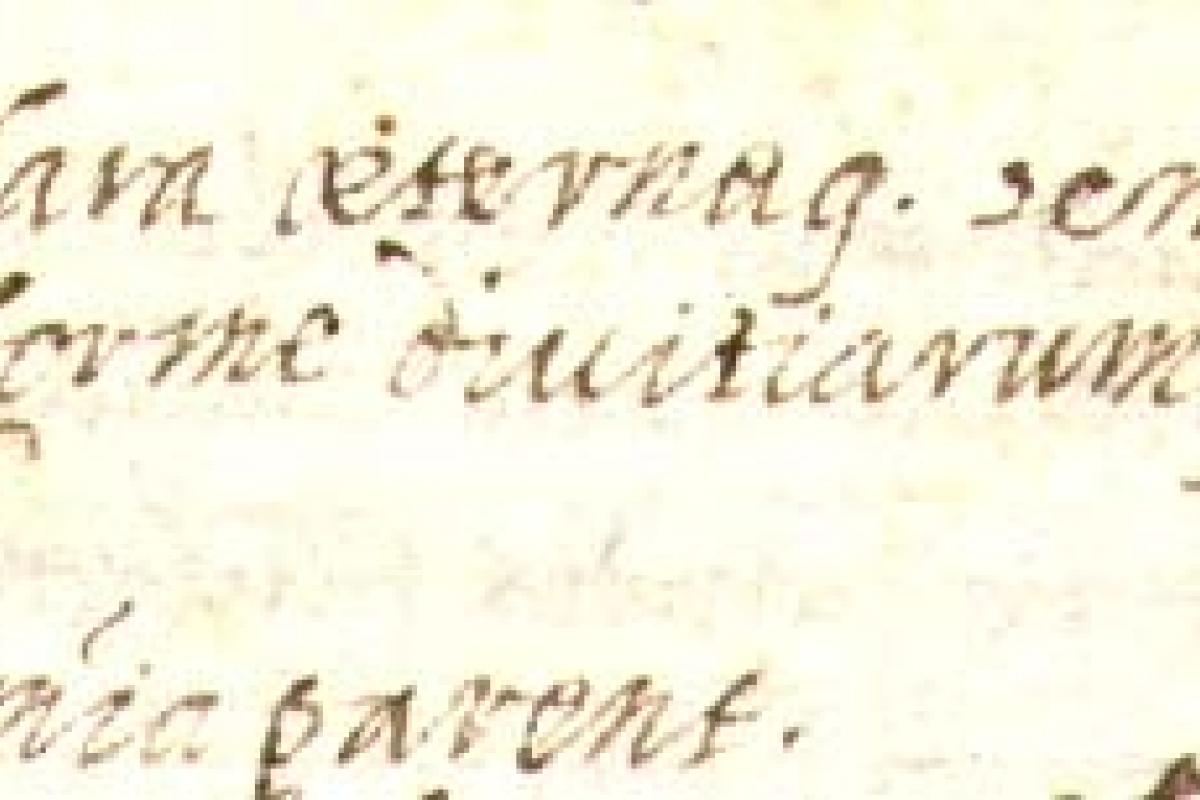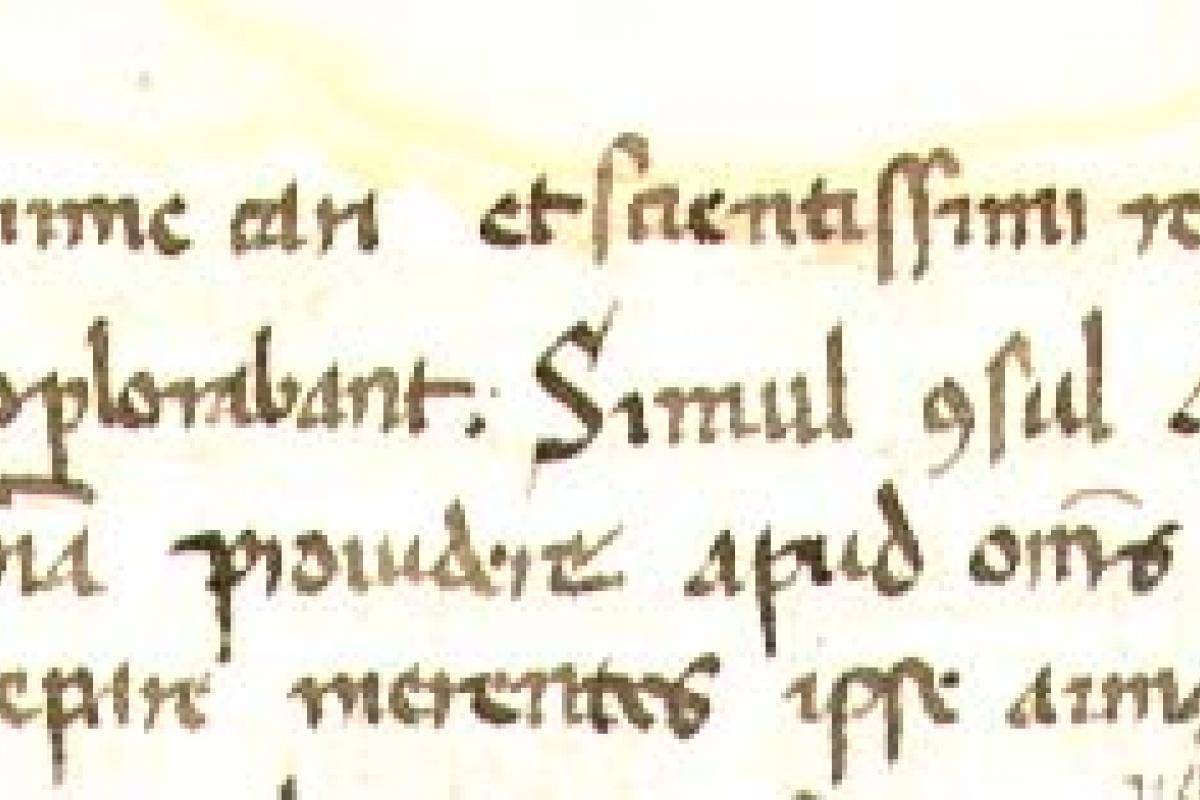Cicero, De Officiis, Gaius Sallustius Crispus (Sallust), De Conjuratione Catilinae and Bellum Jugurthinum, Poems
Cicero, De Officiis, Gaius Sallustius Crispus (Sallust), De Conjuratione Catilinae and Bellum Jugurthinum, Poems
Italian, 1st half 15th century (before 1454)
Language: Latin
ink on paper
height 21.6 cm
width 14.5 cm
The manuscript contains 181 leaves of paper and one front and one back flyleaf, both of paper. No illuminated initials, however, spaces were left for small illuminated initials at the beginning of each text:
- Marcus Tullius Cicero, De Officiis (2r-85v)
- [Unknown], Poems (85v-87r)
- Caius Sallustius Crispus (Sallust), De Conjuratione Catilinae (88r-118r)
- [Unknown], Poem (118)
- Caius Sallusticus Crispus (Sallust), Bellum Jugurthinum (119r-181v)
University of Oregon Special Collections and University Archives
Edward Burgess Manuscript Collection, Ms. 32
Diebold, William. The Illustrated Book in the Age of Printing: Books and Manuscripts from Oregon Collections. Portland, OR: Douglas F. Cooley Memorial Art Gallery, 1993, pp. 17-18 - Quoted with permission
Although contemporary with numbers 3 and 4 [refers to exhibit from which this text was originally a catalog entry], also Italian Cicero manuscripts, this is a very different, much less luxurious kind of book, as is clear from its decoration and its support. This book is written on paper, which was much cheaper than parchment and was commonly used in the fifteenth century, particularly in Italy, for everyday books. Unlike every other manuscript in this exhibition, number 2 was not decorated by a professional illuminator. The large initial "E" on the verso was supplied by an early owner and it is the only such initial in the book; all the others are missing, as on the recto, where the scribe has left a tiny "c" in the left margin indicating the letter to be added. Also executed by this early owner (perhaps the Augustinian friar Jacobo Baptista of Prato, whose 1454 owner's mark is on the book's first page) is the small marginal drawing of a sword labeled Justitia ("Justice").

